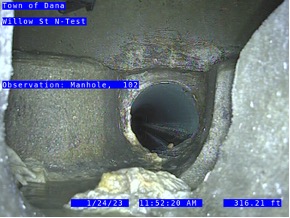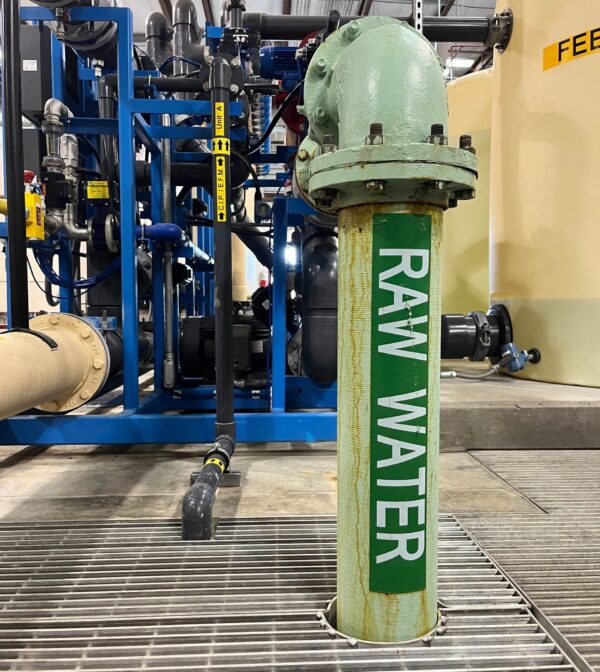Staff in Nebraska is Helping to Build a Sustainable, Resilient Utility Workforce

Sustainable resilience is the ability and capacity to withstand adversity by having a healthy and viable drinking water or wastewater utility that can bounce back from difficult risk events that may impact a utility. In order for utilities to develop infrastructure that’s resilient to natural and human-based risk events, they also need to develop staff capacity to sufficiently operate and manage the utility, as well as ensure the system has adequate financial capacity.
The U.S. Environmental Protection Agency (EPA) has concluded that our nation cannot have resilient public drinking water and sanitary wastewater systems unless we have a strong workforce of operators, managers and governing leaders that are knowledgeable and use robust and planned management practices and procedures. The goal of resilience is to make sure drinking water and wastewater utilities can provide uninterrupted safe service that meets the demands of customers for as long as the utility provides such service.
According to the EPA, in summary, hundreds of thousands of skilled workers that comprise America’s Water Sector Workforce provide us with clean drinking water and safe wastewater treatment every day. Further, EPA is concerned about this workforce diminishing:
“Cities and communities across the country are facing critical staffing shortages for the operation and maintenance of essential drinking water and wastewater infrastructure. Approximately one-third of drinking water and wastewater operators in the U.S. will be eligible to retire in the next 10 years and the water sector has been facing challenges with recruitment and retention of the skilled workers required for jobs in today’s high-tech environment.”
In addition to recruiting new workers, it is important to retain current operators by training them to be skilled workers that can perform the requirements for their jobs in today’s high-tech environment. The EPA has launched America’s Water Sector Workforce Initiative to work with federal, state, Tribal and local governments as well as public utilities, the private sector, water sector associations, community groups and educational institutions to prepare operators to be successful.
Two of the most frustrating issues for operators, especially for ones who work for small systems, are dealing with information management and meeting continuing operator education requirements. Frustrated operators are more apt to quit the profession. Through training and educational support, these operators can become proficient in both areas and not become as easily frustrated and quit the industry.
Documentation for a robust information management plan remains the most challenging and often overlooked aspect of a water treatment operator’s job. For example, the EPA and state regulatory agencies each have policies that require documentation of water testing and operator education. The testing requirements include the type of testing, training and the time documentation that must be maintained. Each state will have different requirements, so it’s critical that operators know what their state requirements are.
Some requirements, such as information documentation, will include the lab’s location that will do the testing, the type of sample, the paperwork needed to accompany the sample, and the delivery timeframe. It is imperative to complete the samples, paperwork and delivery in the timeframe requested. Make sure to retain a receipt for the sample shipment in case it is not completed as needed. This will provide the operator with documentation supporting the completion of requirements on their end. The return of results from the lab/state will provide guidance to the operator on additional requirements or compliance. These results are critical, and the operator must safely store this documentation. Storage of these results is important as it provides the community water quality history. Each year, the Midwest Assistance Program (MAP) holds many training events throughout Nebraska to teach operators how to manage information and the required regulatory documentation.
Training is also provided by MAP staff in Nebraska to help water operators complete continuing education requirements, another important facet of their position. Continuing Education Requirements (CERs) or Continuing Education Units (CEUs) will be stated in two forms – an hourly requirement and a subject requirement. Operators need to complete the educational requirements within the timeframe provided by the licensing agency. Credits can be attained by completing courses presented by a licensing agency representative, a source validated by the licensing agency or by completing online training from a website authorized by the licensing agency. It is vital the training is approved by the licensing agencies before its completion. The operator will need to provide proof of course completion to the licensing agency and retain a copy for their personnel file.
According to the EPA, “Without a sufficiently sized and trained water workforce, water utilities will not be able to meet national drinking water and water quality standards. Recreational, economic, and other benefits associated with clean water resources could be diminished. In addition, water utilities would not have sufficient staff to properly operate and maintain existing or future critical water infrastructure investments.” Properly trained staff make for a healthy utility that is well run on the day-to-day and also better able to plan for and recover from the occurrence of an emergency event as well.

